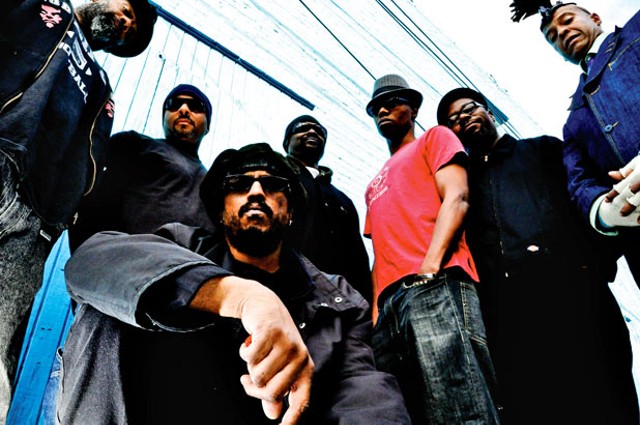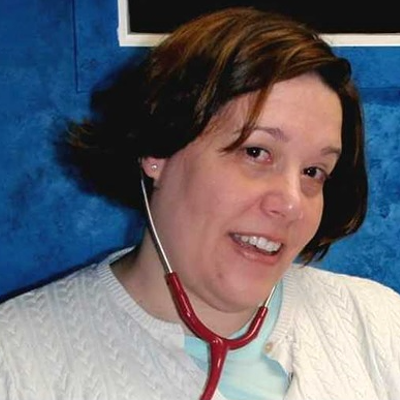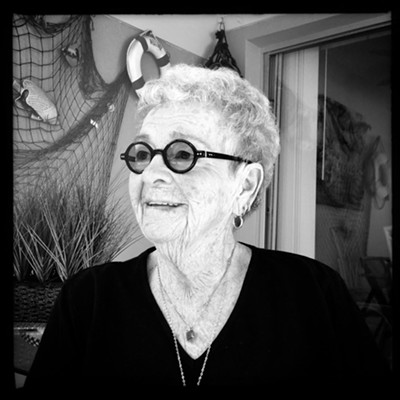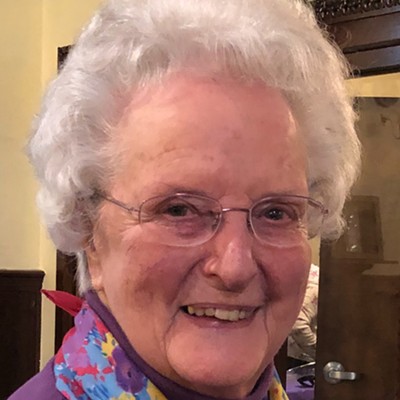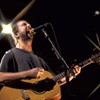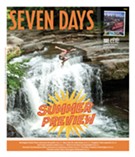Published June 27, 2012 at 6:00 a.m.
Throughout most of the 1980s, few bands were as dynamic and provocative as Fishbone. Born out of the Los Angeles punk and ska scenes in the early 1980s, the sextet represented an explosive and singular fusion of punk, ska, rock, reggae and funk that was unlike anything that came before it. And it laid the groundwork for future genre-bending bands such as No Doubt and Sublime, as well as a third-wave ska sound characterized by the melding of punk rock, heavy metal and ska. But, just as the band seemed poised for mainstream success in the late 1980s and early ’90s, Fishbone imploded, never quite reaching the stardom for which they appeared destined.
The band’s story is captured in a 2011 documentary, Everyday Sunshine — released on DVD earlier this year — that chronicles in unflinching detail Fishbone’s unlikely rise, harrowing fall and subsequent rebirth. The latest incarnation of the group, centered around founding members Norwood Fisher and Angelo Moore, continues to tour and record, furthering Fishbone’s legacy as ska-punk innovators.
In advance of Fishbone’s show at Burlington’s Club Metronome on Monday, July 2, Seven Days spoke with Fisher by phone.
SEVEN DAYS: How much of Fishbone’s early sound was rooted in the social climate of Los Angeles in the late 1970s and early 1980s?
NORWOOD FISHER: I would say quite a bit. That was definitely part of it. We didn’t calculate anything. We were kids doing what came naturally to us, incorporating things that were influencing us and being adventurous youths, exploratory. That’s what created our sound. But it was the climate and the culture we were living in. As we were beginning to come together and be a band, those were the years that Devo, Blondie, the Talking Heads and bands like that were coming out. And fear was a part of it, too. Things were happening in Los Angeles that were frightening. And the media’s fear of punk rock was a part of it, too, when bands like the Clash were crossing over. There was something happening in Los Angeles, this fashion thing where New Wave, punk rock and Melrose intersected. So New Wave was appealing to the ’hood. And black kids started going down to Melrose to buy clothes at thrift shops.
SD: Ah, the original hipsters?
NF: [Laughs.] Yeah, dude. We were teenagers and all into rock and roll. Most of us had family members with roots in rock and roll. So it was all of these things that created who we were.
SD: What was the initial reaction to Fishbone around your neighborhood?
NF: Well, we mostly started in my bedroom.
SD: So what did your mom think?
NF: She endured it. She wasn’t rocking out to what we were doing, but she allowed us to do our thing. Actually, the manager of the building lived directly above us. And he allowed us to do our thing. Really, he was the first person who stepped up and said, “Aw, man. You all finally got a groove.”
SD: There is a great quote in the documentary from Ice-T, who says even the gangbangers thought you guys were crazy. Was that pretty typical of the reaction to you?
NF: Absolutely. That probably kept us safe. As wild as that culture is, gangsterism, they would get freaked out because we were so different. They left us alone.
SD: The band’s racial makeup was unusual for punk at the time, but your sound was just as unusual and provocative. Was either of those aspects more challenging for audiences than the other?
NF: The audiences weren’t the problem. We played with all kinds of different bands, rockabilly bands, punk bands, funk bands. We did things with reggae bands, other ska bands. And mostly we’d walk away with some fans on some level. It was really the business of music where we had the most obstacles. They didn’t know what to do with us.
Especially when we started to become more popular and formed allegiances with bands like the Red Hot Chili Peppers and the Untouchables, it became even easier. At the time, we wanted it so bad that sometimes it seemed like it was harder than it was. In hindsight, we started playing clubs in May of 1983. By November of 1984, we were signed to a major label. That’s pretty quick.
SD: Annette Funicello, of all people, was instrumental introducing Fishbone to mainstream audiences when she put you in her movie, Back to the Beach. How did that come about?
NF: Really, it was because we were a ska band, and she is basically the person that introduced ska music to mainstream America. She was covering Jamaican ska in the 1960s. So ska music and surf culture are forever married by Annette Funicello. But actually, when we filmed that, we were in the middle of the Licensed to Ill tour with the Beastie Boys. So the Beastie Boys and that movie really launched us.
SD: You must have been really sad to hear of MCA’s passing. [Beastie Boys cofounder Adam Yauch, aka MCA, died of cancer last month.]
NF: That was a fucking tragedy, man. He was a young fucking man with a lot of life ahead of him. The tour we did with them has a lot to do with the fact that I still have a career today. I still get people who say they saw us with the Beastie Boys.
So it was painful. After that tour, they were always really cool with us. During the tour, they kind of kept us separated. The tour managers didn’t want Fishbone and the Beasties fucking with each other too much. We were crazy as hell and the Beastie Boys were crazy as hell. But after the tour they showed us even more love and embraced us. They’re amazing guys. The last time I saw MCA, we were on our way to the aiport, leaving New York, and I saw him in the street. I got out of the van, hugged him and had a great conversation with him. It is really sad, but he accomplished so much in such a short time. He left an example of a life well lived.
SD: Fishbone famously imploded just when it seemed the band was going to explode. I imagine there is probably some regret there. But you also must be proud to have influenced and helped pave the way for bands such as No Doubt and Sublime, among others.
NF: Absolutely. As the picture begins to get clearer about the depth of our influence, that validates the choices we made as musicians in our youth more than anything. Well, some of the bad decisions we don’t want to validate. [Laughs.] But we were fuck-ups. And I think we paid a higher price for our fuck-ups than some of our peers. But that’s all part of the journey. So I am proud of the band’s legacy. It is something I can hold my head high about.
Fishbone play Club Metronome in Burlington this Monday, July 2, 7 p.m. $12/15. Trapper Keeper open.
More By This Author
Speaking of Music, musician Profile
-

Two Local Band Directors March in the Macy's Parade
Nov 22, 2023 -

Before a Burlington Show, the Wood Brothers Get Back to Basics
Oct 26, 2023 -

After a Half-Century of Leading Local Ensembles, Steven and Kathy Light Prepare a Musical Farewell
May 3, 2023 -

Double E 2023 Summer Concert Series Kicks Off With the Wailers
Mar 17, 2023 -

UVM’s New School of the Arts Gathers Many Creative Disciplines Under One Roof
Sep 14, 2022 - More »
Comments
Comments are closed.
From 2014-2020, Seven Days allowed readers to comment on all stories posted on our website. While we've appreciated the suggestions and insights, right now Seven Days is prioritizing our core mission — producing high-quality, responsible local journalism — over moderating online debates between readers.
To criticize, correct or praise our reporting, please send us a letter to the editor or send us a tip. We’ll check it out and report the results.
Online comments may return when we have better tech tools for managing them. Thanks for reading.

































